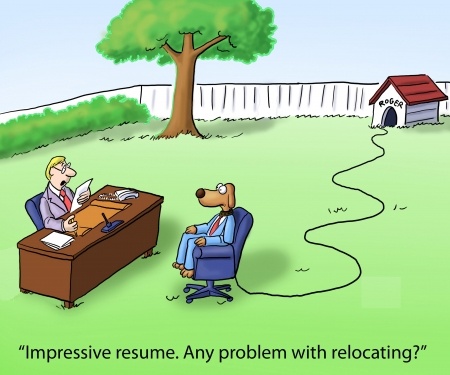
In my opinion, interviewing for a job is like dating. You are unsure what someone expects of you. Both parties want to determine if it is a good match. The whole experience is so nerve-wracking that you want to do it as rarely as possible.
As a recruiter turned job search consultant, I cannot help you with your love life, but I can provide you with insight into the minds of hiring officials. Here are ways to handle some of the toughest interview questions.
“Tell me about yourself.”
What you’re thinking: How much detail do you want?
When people start a sentence with a verb, it is a command. Applicants often wonder how much detail an interviewer wants. Here are my recommendations:
- Avoid being too personal. Discussions about family leave an interviewer wondering if you have adequate child or eldercare arrangements.
- They do not want an autobiography. Limit your answer to three or four sentences that focus on the value you bring to a hospital or medical practice.
- Include a highlight about yourself. From my experience, the biggest risk for candidates is not that they come across poorly; it is that they are not memorable at all. Think about your biggest achievement and incorporate it into your answer.
“How did you handle a difficult situation at work?”
What you’re thinking: I have dealt with so many weird situations, it could fill a book!
Tough patients, toxic co-workers, and uncommunicative managers are just a few of the challenging situations that people encounter in the workplace. When I was an interviewer, I wanted candidates to give a concise response that described a situation and the steps that they initiated to resolve it. Here is an example of how you might talk about dealing with a difficult co-worker:
I am a very helpful person. Unfortunately, one of my co-workers tried to use this trait to push her work on to me. When I realized what she was doing, I informed her to please bring a pad and paper so she could take notes and know how to do the work herself. She never tried to push her work on me again.
People love that example. It demonstrates how to deal with a manipulative co-worker without calling the person a manipulative co-worker. The key is to prepare an anecdote that shows you recognizing a problem and taking the initiative to implement a solution.
“What type of salary are you looking for?”
What you’re thinking: I’m afraid of selling myself short.
Sales professionals and purchasing managers spend their days negotiating deals. You probably pursued a career in healthcare because you are investigative and/or enjoy helping people. However, the medical profession is your livelihood, and you want to make sure you receive the maximum amount of compensation.
In addition to reviewing information from websites such as PayScale.com or onetonline.org, I recommend reaching out to recruiters. Ask them what types of compensation packages practices or hospitals award successful candidates. This information helps you formulate a target salary range.
It is important to try to deflect questions about salary so you do not underprice (or overprice) yourself. Here are some phrases to use in your next interview:
- If I’m the right person for the job, I’m sure we can agree on the compensation.
- I’m glad you brought that up, what is the range you have in mind for the successful candidate?
- Are you making me an offer? If so, what range did you have in mind?
FYI- My customers are most comfortable with the second phrase.
Tone and Consistency Matter
When you prepare ahead of time, you will not hesitate during a phone or face-to-face interview. The queries mentioned above are very common in the interview process. Practice your responses with a friend or family member ahead of time so you project a polished, professional image and win a great job offer.
To read part one of this series please click here.
